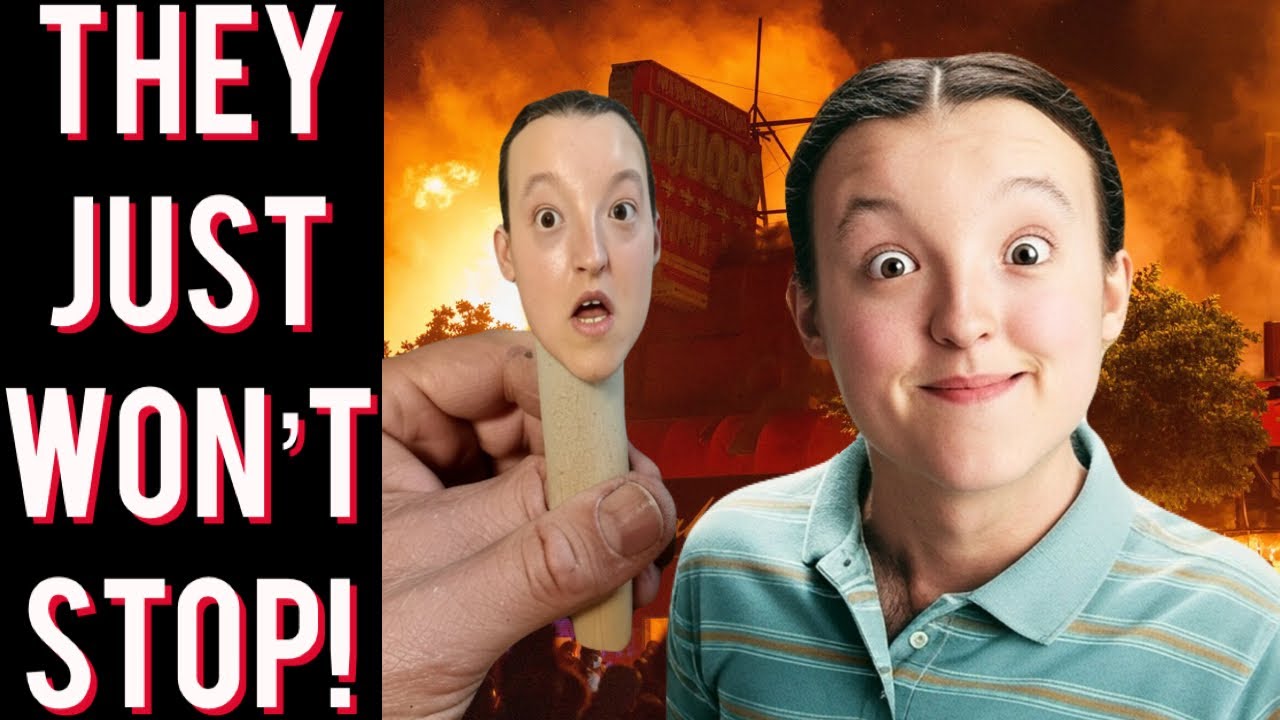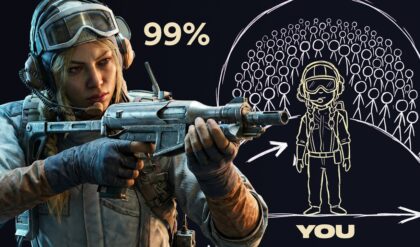The Last of Us Season 2 Is COLLAPSING! 😲
Why are fans ditching HBO’s big sequel?
Some scream “woke betrayal.”
Others defend it as bold storytelling.
What’s sparking this epic clash?
Click to uncover the shocking truth! 👇

The Last of Us Season 2, HBO’s adaptation of Naughty Dog’s polarizing video game sequel, has ignited a firestorm of controversy since its premiere on April 13, 2025. X posts, like one from @YellowFlashGuy, claim that “shills won’t back down” while “shocked normies reject Hollywood hype,” reflecting a growing divide between the show’s defenders and its detractors. With viewership dropping 18% compared to Season 1 and audience scores tanking to 54% on Rotten Tomatoes, the season has struggled to maintain the universal acclaim of its predecessor. This article explores the backlash, the role of “shills” (ardent supporters), and the reasons why casual viewers—“normies”—are turning away, drawing on recent reports, fan sentiment, and critical analysis.
The Backlash: A Perfect Storm of Discontent
Season 1 of The Last of Us was a triumph, earning a 96% critic score on Rotten Tomatoes and averaging 32 million global viewers over 90 days. Its faithful adaptation of the 2013 game, coupled with standout performances by Pedro Pascal (Joel) and Bella Ramsey (Ellie), won over gamers and newcomers alike. Season 2, based on the divisive The Last of Us Part II, faced a tougher challenge. The game, released in 2020, sparked heated debate over its narrative choices, particularly the early death of a key character and its focus on cycles of violence. Leaks before the game’s launch fueled preemptive hate, a pattern now repeating with the show.
The season’s premiere shocked casual viewers unfamiliar with the game’s plot, leading to an immediate backlash. X posts report “normie coworkers” dropping the show after a pivotal early episode, with some citing disappointment over the reduced role of a beloved character. By the finale, “Convergence,” viewership had plummeted 55% from the premiere, with HBO attributing the drop to Memorial Day weekend but failing to quell fan frustration. Social media platforms like Reddit’s r/TheLastOfUs2 and r/CriticalDrinker amplify the outrage, with users calling the season “hyper-feminized” and a “teenage dyke drama” that prioritizes “woke” agendas over zombie action.
The “Shills”: Defenders of a Bold Vision
The term “shills,” often used pejoratively, refers to vocal supporters of Season 2, including showrunners Craig Mazin and Neil Druckmann, critics, and fans who praise its ambition. On X, @RinoTheBouncer quotes Mazin admitting they “f**ked themselves” with high expectations, suggesting accountability for the season’s missteps. Yet, defenders argue the show stays true to the game’s polarizing story while enhancing its emotional depth. Bleeding Cool’s review of the finale praises its “non-stop action” and “riveting turns,” crediting Mazin, Druckmann, and stars Bella Ramsey and Young Mazino for delivering a setup for Season 3.
Critics have largely embraced the season, with Metacritic reporting a 91/100 score based on universal acclaim. Reviewers highlight its gorgeous visuals, intense action, and performances, particularly Isabela Merced as Dina, though some note her overly polished appearance as a Hollywood trope. On Reddit’s r/thelastofus, fans compare the season to Game of Thrones at its peak, dismissing detractors as biased gamers relitigating the game’s controversy. These supporters argue that the show’s focus on complex themes—justice, revenge, and identity—elevates it beyond typical zombie fare, even if it alienates casual viewers.
Why Normies Are Rejecting the Hype
The term “normies” refers to casual viewers unfamiliar with the game, who expected a continuation of Season 1’s Joel-and-Ellie-focused survival story. Their rejection stems from several factors:
Narrative Shocks: The season’s early episodes deliver a gut-punch moment that upends expectations, alienating viewers invested in the Season 1 dynamic. X posts note that many stopped watching after this event, with @Gabuchogram reporting confusion among non-gamers by the finale. Forbes labeled the audience backlash as “review-bombing,” but the 54% Rotten Tomatoes score reflects genuine discontent.
Shift in Focus: Season 2 leans heavily into Ellie’s arc, with Ramsey’s performance drawing both praise and criticism. Some Redditors call her “miscast,” arguing she can’t carry the show without Pascal’s Joel, while others defend her Emmy-nominated work. The introduction of new characters like Dina and Jesse, coupled with a focus on a lesbian relationship, has been polarizing. Reviews on Out.com highlight homophobic review-bombing, with terms like “woke bs” flooding user comments.
Pacing and Tone: Critics like TIME note that Season 2’s seven-episode run feels rushed compared to Season 1’s nine episodes, sacrificing subplots for a leaner, action-heavy narrative. Reddit’s r/thelastofus acknowledges the “gorgeous craftsmanship” but critiques the pacing of key events, which fail to land the “striking effect” of the game. Dialogue, often penned by Mazin, has drawn ire, with one Reddit user mocking a line from Ellie’s speech as “the worst I’ve ever heard.”
Cultural Divide: The backlash mirrors broader tensions in entertainment, where “woke” has become a catch-all for perceived political agendas. X posts from @ZiloElGrande claim viewers are “tired of ‘Who is going to turn up queer,’” reflecting a segment of the audience rejecting the show’s progressive themes. Conversely, r/Gamingcirclejerk mocks this discourse as overblown, arguing that the hate is less about storytelling and more about cultural resentment.
Hollywood’s Hype Machine: Expectations vs. Reality
HBO’s marketing for Season 2 leaned heavily on the success of Season 1, promising more action, bigger stakes, and fidelity to the game’s story. Trailers showcased Seattle’s war-torn landscapes and teased celebrity guest stars, but the hype set unrealistic expectations for a story that was always going to divide. The game’s 2020 release saw similar vitriol, with leaks amplifying hate over its narrative choices. Mazin and Druckmann, aware of this history, chose to double down on the game’s themes, a decision that paid off critically but alienated casual viewers.
The “shill” narrative suggests a disconnect between Hollywood’s elite and the audience. On X, @Vara_Dark notes the Rotten Tomatoes score drop to 54%, accusing HBO of “hiding” negative reviews. Reddit’s r/TheLastOfUs2 reports censorship on the main HBO subreddit, where critical comments were allegedly deleted, fueling perceptions of a “fragile bubble” protecting the show. This has only deepened distrust, with fans feeling gaslit by defenders who dismiss their critiques as “hyperbolism.”
The Bigger Picture: Gaming Adaptations in Crisis?
The Last of Us Season 2’s struggles reflect broader challenges for video game adaptations. While Season 1 proved games could become prestige TV, Season 2 highlights the risks of adapting divisive source material. The game’s fanbase, already split, brought baggage to the show, with r/TheLastOfUs2 declaring “Part II is not canon.” Meanwhile, normies, unaware of the game’s twists, felt blindsided by a story that prioritized emotional complexity over zombie thrills.
Other adaptations, like Halo and Resident Evil, have faced similar pushback when straying from source material or leaning into controversial themes. The Last of Us Season 2’s high production values—gorgeous ruins, baroque infected, and Wicker Man-level horror—can’t mask the narrative disconnect. As News18 notes, the 18% viewership drop signals a failure to retain the broad audience that made Season 1 a hit.
Can Season 3 Recover?
The finale, “Convergence,” sets up Season 3 with a “reset” in focus, introducing new characters like Jeffrey Wright’s Isaac and hinting at a shift in perspective. Mazin’s admission of “learning lessons” suggests HBO may adjust course, but the damage may be done. Fans who loved the game, like those on r/patientgamers, argue the story’s brilliance lies in its divisiveness, but TV demands broader appeal. With Ramsey and Merced returning, and Pascal’s role likely diminished, Season 3 must balance fidelity to the game with accessibility for normies.
Conclusion: A Tale of Two Audiences
The Last of Us Season 2 is a microcosm of modern entertainment’s challenges: balancing artistic ambition with audience expectations, navigating cultural divides, and adapting niche stories for mass appeal. The “shills” see a bold, well-crafted season that honors the game’s legacy, while “normies” feel betrayed by a shift from the zombie survival tale they loved. The truth lies in the middle: Season 2 is a technical marvel with flawed execution, caught in a culture war it didn’t create.
As HBO prepares for Season 3, the lesson is clear: hype can’t outrun reality. Whether the show can win back its audience depends on its ability to bridge the gap between gamers and casual viewers, delivering a story that shocks without alienating. For now, the backlash serves as a warning to Hollywood: even the biggest hits can stumble when they forget who’s watching.





